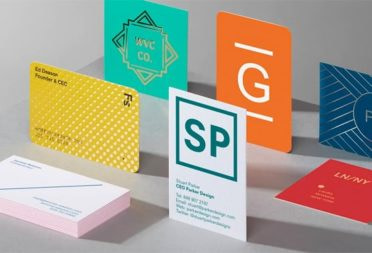How founders can scale without losing their magic
Dilys Maltby on the importance of knowing why your business exists.

Founders are professional plate spinners, often juggling several business priorities at any one time. Growing the business can usually be found somewhere at the top of the to-do list. But at what point should a founder be thinking about codifying the purpose of their business?
According to Dilys Maltby, Senior Partner and Circus co-founder, defining why your business exists – the raison d’etre of your brand – is a vital step in your business journey, and can be key to unlocking future growth.
Having worked with brands like Virgin and Microsoft, as well as serving as a Non-Executive Director for Responsible Travel, Sophia Webster and The White Company, Dilys has seen firsthand the impact of this codifying process, particularly for businesses which are scaling or going through change.
We sat down with Dilys to speak about the importance of writing things down, building a purpose-driven foundation, and recruiting people who truly “get it.”
Whether you’re a startup founder or an established leader, her insights can help you center your business around what really matters and avoid costly mistakes.
Defining your purpose
Circus specializes in one thing: helping organizations define why they exist. “And sometimes that definition is called purpose. Sometimes it’s called brand strategy, and sometimes it’s called proposition,” says Dilys.
Codifying your purpose means writing down your business’s “why” in a clear, actionable way. This isn’t just about crafting a vision statement; it’s about defining the core reason your business exists, the impact you aim to make, and how that should shape every aspect of your operations.
Circus’s approach to purpose is straightforward: “Purpose is clarity of intent,” says Dilys. It’s about knowing what you do, who you do it for, and how that is manifested across your organization. The term “purpose” is often misunderstood, but it’s not just social or environmental goals. Those might form part of a brand’s purpose, but they must align with your overarching business strategy rather than being standalone initiatives.
Founders walk fast
Dilys identifies three common types of founders, each with unique motivations that shape their businesses.
The Lifestager: Inspired by personal experience, these founders address a specific gap they’ve encountered, such as a product they couldn’t find or a need they experienced firsthand.
The Rebel: Driven by a desire to disrupt, they challenge conventional processes and seek to innovate.
The Evangelist: Passionate about making a difference, these founders aim to change or save the world in some way.
Regardless of type, all founders share common traits of self-belief and high energy. Dilys jokes that Circus sometimes judges a business by how quickly people walk. “They want to see things at pace. They have a particular singular focus, which means that they are determined to achieve one thing and they think that any other option is a waste of time. So they’re much more determined about their path ahead.”
Knowing what sort of founder you are (or you are working with) helps make sure you can find the right team that will understand how best to collaborate and align on a purpose.
Recruiting people that “get it”
As your business scales, the need to bring in new talent—often professionals with “big-company” experience—is inevitable. But unless your purpose is well-defined, mismatches can happen. This leads to the familiar complaint: “They just don’t get it.”
Why you should write things down
It’s easy to avoid writing down your business’s purpose, but it’s an essential step. Dilys often encounters founders who are reluctant to put things on paper, fearing that it’ll be boring and uninspiring. But capturing your company’s vision and strategy is not just about words on a page, it’s about creating something that speaks to your culture.
Dilys explains, “You really want to make sure that the design of the process is appropriate to the culture of the organization,” so that it is not “tedious and dull.”
When Dilys worked with the leadership team at Virgin Atlantic, they were initially hesitant to formalize their ideas, worried that the process would clash with their vibrant, maverick culture. However, by designing the process to match the company’s culture, the team could engage creatively and effectively. When the process encourages participation, it becomes enjoyable and brings out the best in the team.
The art of the French founder exit
Exiting a business is a hard transition for founders and the employees they leave behind. It can leave a gap that disrupts the company’s culture and vision. To plan for exit, founders must write their exit strategy down, document the brand’s purpose, recruit the right people, and plan for their future.
As Dilys explains, “It’s really hard, and there’s no magic formula. You need to spend time on leadership, ensuring the next team is right.”
“You need to spend time on leadership, ensuring the next team is right.”
Founders should reflect on their motivations—whether they’re seeking financial freedom, a fresh start, or to protect the legacy of their business. A clear roadmap allows them to align their departure with personal and professional goals.
A good example of this is Pukka Herbs’s founders. They not only codified their company’s principles but also envisioned meaningful post-exit pursuits. By doing so, they were able to navigate the transition with clarity, ensuring both the future of the business and their own lives were in strong standing.
So before you start thinking of scaling your business, start with defining your why and writing it down. A clear why not only attracts the right people but also forms the building blocks of a stronger business in the long run.
Define your purpose, and the rest will follow.
Dilys is Senior Partner and Circus co-founder. As a practitioner she has led engagements for a wide range of clients – including Pets at Home, Dunelm, Selfridges, Microsoft, Virgin, and Hyundai UAM. Dilys is also a Non-Executive Director for Responsible Travel, Sophia Webster and The White Company.
Prior to Circus, Dilys was General Manager, Brand and Marketing, for The Body Shop International. Here, working for the late Anita Roddick and Gordon Roddick, Dilys had responsibility for the brand and marketing worldwide. The Body Shop was a founding client and re-engaged Circus to help articulate its Purpose, under the new ownership of Natura.
Dilys started her career in advertising and then moved to client-side roles at Bonhams and Habitat – here she worked for Terence Conran: a short but memorable experience sparking her enjoyment of all things brand, retail and design. Dilys then moved to Fitch working for Rodney and to Imagination, for Gary Withers.
Keep in touch
Get design inspiration, business tips and special offers straight to your inbox with our MOOsletter, out every two weeks.







